Minors in the Bachelor’s Degree Programmes
Minor in Travel and Service Business Entrepreneurship (BM-TSB)
September 21, 2021 2024-05-14 4:03Minor in Travel and Service Business Entrepreneurship (BM-TSB)
Minor in Travel and Service Business Entrepreneurship (BM-TSB)
(For students with ID 63 onwards)
Travel and Service Business Entrepreneurship Minor (20 credits)
To minor in Travel and Service Business Entrepreneurship, students need to complete minimum 20 credits comprising the compulsory subjects (3 subjects) and elective subjects (2 subjects)
Compulsory subjects (12 credits) (For students with ID 63 onwards)
Elective subjects (8 credits)
Students can choose two of the following subjects (also based on the availability of the course) amongst the following groups in Travel and Service Business Entrepreneurship Curriculum:
1) Core Courses in Management
2) Core Courses in Travel and Service Businesses Entrepreneurship
3) Required Courses
4) Major Elective Courses
5) Internship I
Compulsory subjects (12 credits) (For students with ID 63 onwards)
| Course code | Course name | Credit |
| ICTB 201 | Introduction to Travel and Service Businesses | 4 (3-2-7) |
| ICTB 304 | Service Management and experience design | 4 (4-0-8) |
| ICTB 315 | Entrepreneurship and Business Plan Development | 4 (4-0-8) |
Hospitality Design Perspectives Minor (20 credits) [New]
(For students with ID 63 onwards)
*This minor must end with ICTB 323
*This minor must end with ICTB 323
| Course code | Course name | Credit |
| ICCD 119 | 2D Design Principles | 4 (2-4-6) |
| ICCD 210 | Communication Design Studio | 4 (2-4-6) |
| ICTB 321 | Room Division Operation Management | 4 (4-0-8) |
| ICTB 331 | Culinary Operation | 4 (3-2-7) |
| ICTB 323 | Hospitality Facilities Design | 4 (3-2-7) |
Events Management, Design and Production Minor (20 credits) [New]
(For students with ID 63 onwards)
| Course code | Course name | Credit |
| ICCD 201 | Conceptual Development | 4 (2-4-6) |
| ICTB 351 | Event Planning and Operation | 4 (4-0-8) |
| ICTB 352 | Event and Experience Design | 4 (3-2-7) |
| ICTB 353 | Event Business Stakeholders Engagement | 4 (4-0-8) |
| ICTB 355 | Creative Event Production | 4 (3-2-7) |
Food Service and Wine Business Minor (20 credits) [New]
(For students with ID 63 onwards)
Remark: This minor must end with ICTB 335
| Course code | Course name | Credit |
| ICTB 331 OR ICTB 332 | – Culinary Operation Management – Baking and Pastry Business | 4 (3-2-7) 4 (3-2-7) |
| ICTB 334 OR ICFS 439 | – Restaurant Marketing and Branding Strategies – Food Product Innovation | 4 (4-0-8) 4 (4-0-8) |
| ICTB 344 | Wine Studies and Wine Tourism | 4 (3-2-7) |
| ICFS 365 | Food Safety and Sanitation Management | 4 (4-0-8) |
| ICTB 335 | Restaurant Business Planning and Operation (Capstone course) | 4 (4-0-8) |
Minor in International Hospitality Management (BM-IHM)
(For students with ID 61 and 62)
International Hospitality Management Minor (24 credits)
To minor in International Hospitality Management, students need to complete minimum 24 credits comprising the compulsory subjects (16 credits) and elective subjects (8 credits).
Compulsory subjects (16 credits)
(For students with ID 61 and 62)
Elective subjects (8 credits)
Students can take any courses offered by International Hospitality Management program as a major elective course.
| Course code | Course name | Credit |
| ICHI 202 | Introduction to Hospitality and Tourism Industry | 4 (3-2-7) |
| ICHI 205 | Consumer Behavior for International Hospitality Management | 4 (4-0-8) |
| ICHI 311 | Sustainable Development in Hospitality and Tourism | 4 (4-0-8) |
| ICHI 412 | Entrepreneurship and Strategic Management for International Hospitality Management | 4 (4-0-8) |


